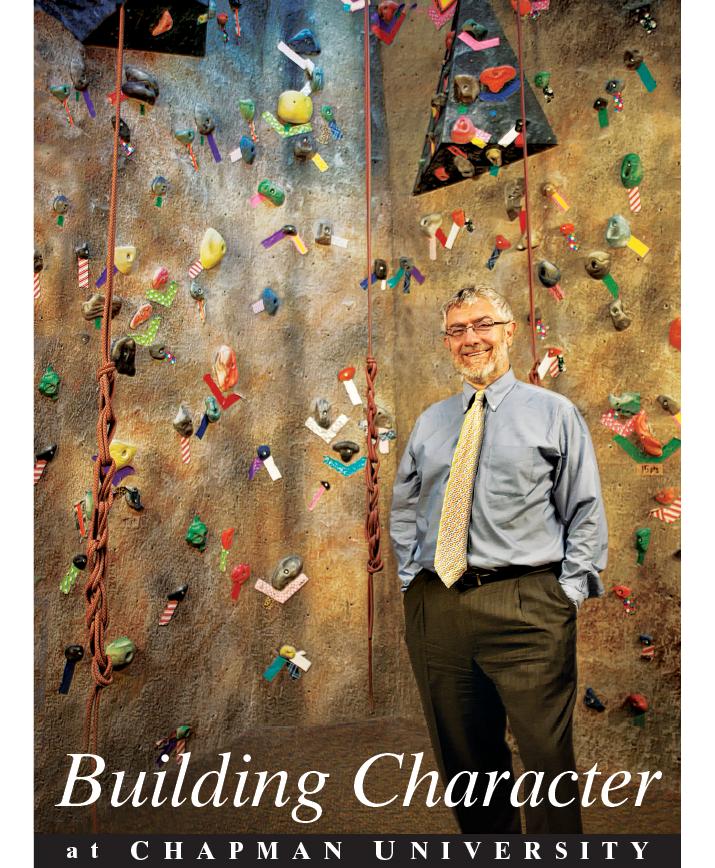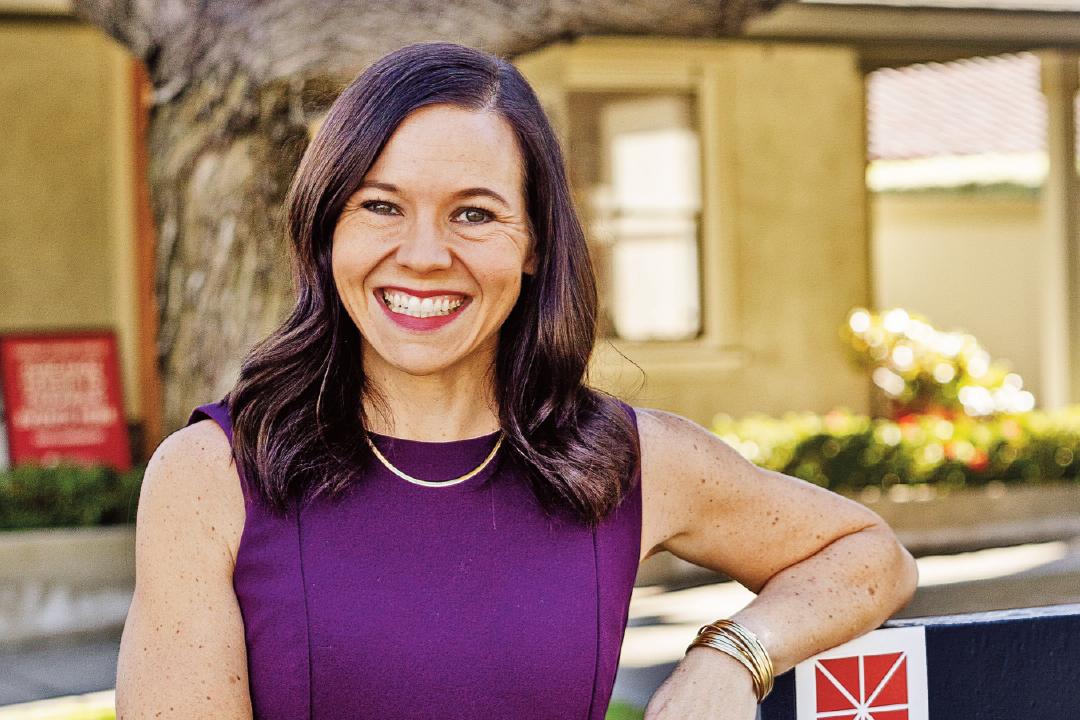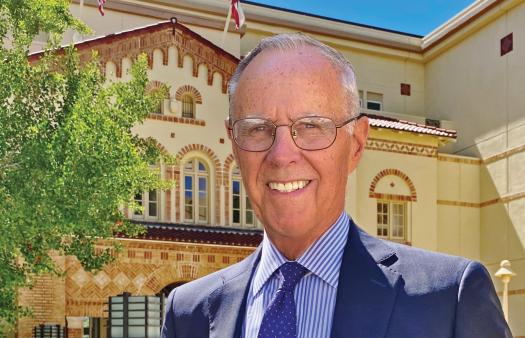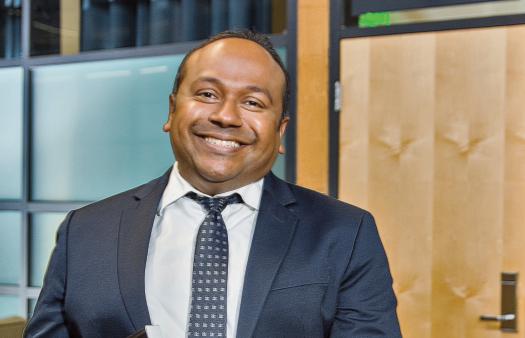
Dr. Daniele Struppa
At the age of 10, while other boys played at the park, Daniele Struppa had another destination in mind when he thundered down the five flights of stairs in the apartment where he lived in Milano, Italy, raced across the street and yanked open the door to his home-away-from home, Il Libraccio. There in the bookstore where he had an unlimited line of credit, Struppa roamed the shelves, seeking out new volumes to devour and feed his fertile, young mind.
Born a bibliophile to well-educated lawyer parents who owned thousands of books, Chapman’s chancellor spent his youth discussing literature over breakfast, lunch and dinner.
“My parents valued education, including books and classical music,” says Struppa, who began reading at the age of four. “I never had fancy clothes, but I did have an open account at the book and record stores, and that shaped who I am today.”
A noted scholar, administrator and internationally recognized mathematician, Struppa serves as Chapman University’s Chief Academic Officer. His responsibilities are vast, including coordinating curriculum, overseeing faculty hiring, tenure and promotion, as well as academic assessment and institutional research. Since arriving at Chapman in 2006 after serving as Dean of George Mason University’s College of Arts and Sciences, Struppa has drawn from his extensive, well-rounded background to accomplish a great deal at Chapman, including creating the College of Performing Arts, the Economic Science Institute, which put the school on the map in the area of behavioral economics, and the Schmid College of Science. He also teaches math, which is another love that formed in childhood.
“I have always been drawn to numbers, which thrilled my mother, because she found the subject very difficult,” says Struppa, who taught mathematics during the 1980s at the Universities of Milano and Calabria, as well as at the Scuola Normale Superiore in Pisa, before moving to the U.S. permanently in the early 1990s. “My mother was very religious and prayed I would be good with math when she was pregnant with me. When I showed an interest and got good grades in the subject, she pointed to her praying as the reason, although my father was also very good in math.”
Struppa’s fascination with math led him to not only teach the subject, but to author articles and books and lecture around the world on the topic.
Domenico Napoletani is a former student of Struppa’s, who is Research Associate Professor at the Center for Applied Proteomics and Molecular Medicine at George Mason University. The two often collaborate on projects related to mathematical concepts in relation to issues such as cancer.
“What characterizes Daniele’s work is the refined taste and deep insight that he brings to his research choices,” says Napoletani. “This is most evident in his successful involvement in algebraic analysis, a theory that employs algebraic methods and ideas in the study of differential equations. At the same time, he is so attuned to the aesthetic value of mathematical ideas that he never forgets their wider historical and cultural context, which is rare among mathematicians. He is also able to recognize fruitful ideas in their most germinal form and fearlessly pursues them.”
It is Struppa’s diverse interests and talents that make him perfect as Chapman’s chancellor, says the school’s president James Doti. “While Daniele is one of the world’s great mathematicians, he also has knowledge and insights into music, the arts and literature and is a true renaissance man. Unlike many well-rounded individuals who are often dilettantes, Daniele has depth as well as breadth of knowledge. Because of this, he’s been incredibly successful in providing the kind of academic leadership that propelled Chapman to national stature. He realizes the key to being a truly great learning institution is recruiting and retaining the best faculty and students possible.”
Struppa recruited Nobel Laureate Vernon Smith to join Chapman’s faculty, and Smith comments on the administrator’s skills. “Based on my experience in over 50 years in public and private universities, I believe that really innovative university administrators like Daniele are rare,” says Smith. “A quote from Marie Curie, who was the first person to win two Nobel prizes, applies to Daniele: ‘I never see what has been done. I only see what remains to be done.’ ”
In addition to his professional achievements, Struppa is an accomplished mountain climber, who has reached a number of challenging summits. It is his love of climbing that led to an instant friendship with Doti.
“When Daniele walked into my office for his interview and recognized the mountaintops in my summit photos, I was amazed,” says Doti. “We’ve climbed almost all the same mountains. Talk about a kindred spirit! We share a lot of laughs and are both mathematically oriented. When I climbed Denali (Mt McKinley), he emailed me a number problem. The team and I couldn’t solve it. When I asked, he said it was unsolvable because he left out critical information. He did that to occupy our minds so we wouldn’t think about how cold and lonely we were.”
Although Struppa doesn’t climb much anymore so he can devote his free time to wife Lisa Sparks, a professor at Chapman, and their daughters Athena, 4 and Arianna, 7, it is mountain climbing’s camaraderie he finds the most rewarding. “When you’re roped together with fellow climbers, this gives you an incredible sense of teamwork,” he says. He experiences that same sense of teamwork at Chapman.
“We’re all working for a common purpose, which is something that I craved but didn’t experience until coming to Chapman,” he says. “In Italy, for example, though I love the country, they are very bureaucratic and resist change, which is why I decided to live and work in the U.S.”
Many would agree that Italy’s loss was America’s gain.
Doti-Struppa Rock Wall
Featuring a towering 51-foot textured surface, the popular Doti-Struppa Rock Wall in the Sandhu Center at Chapman University is the tallest University-owned rock wall in Southern California. The Wall, which was funded and founded by its namesakes, features two auto-belays, four belay stations and dozens of top rope and bouldering routes.
To assist the novice climber, experienced staff members are always on hand to teach the basics. All new participants are also required to take a clinic that covers rock wall safety and gear.



